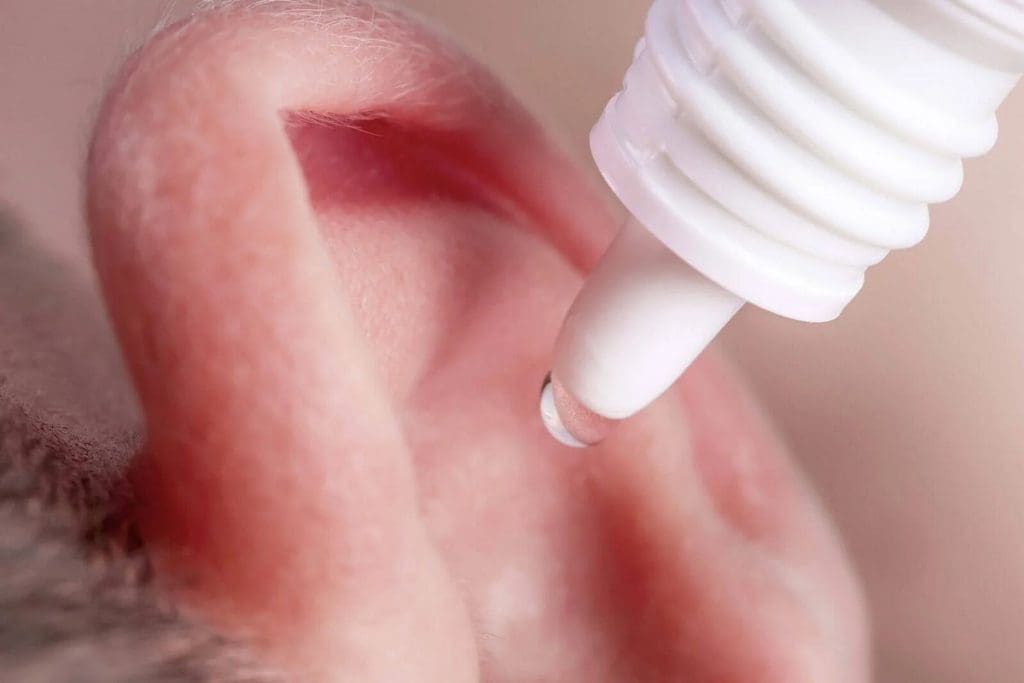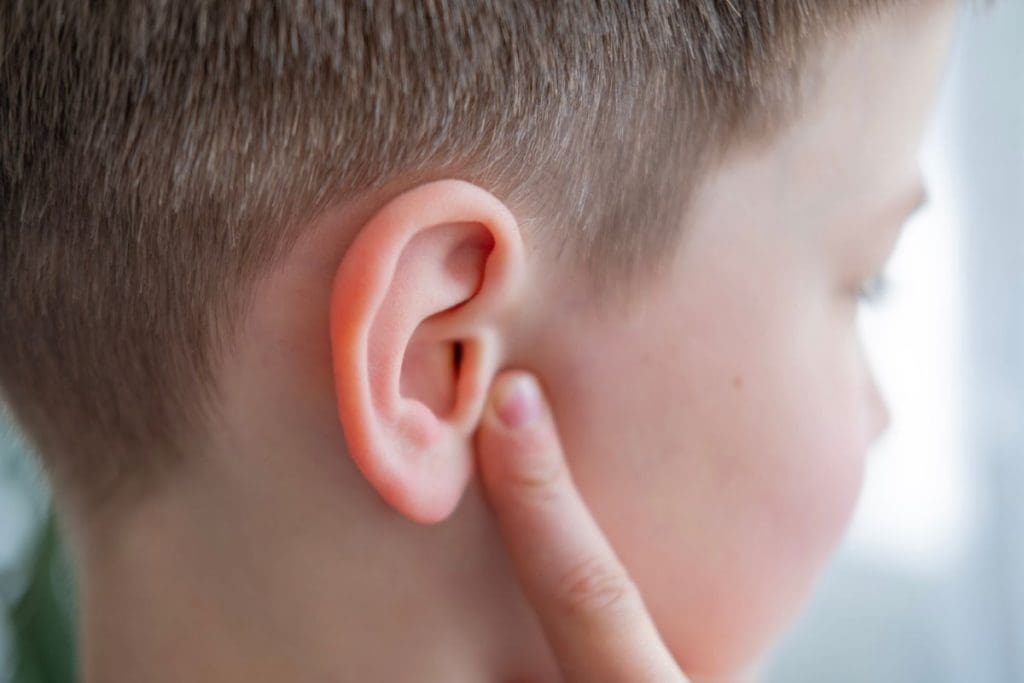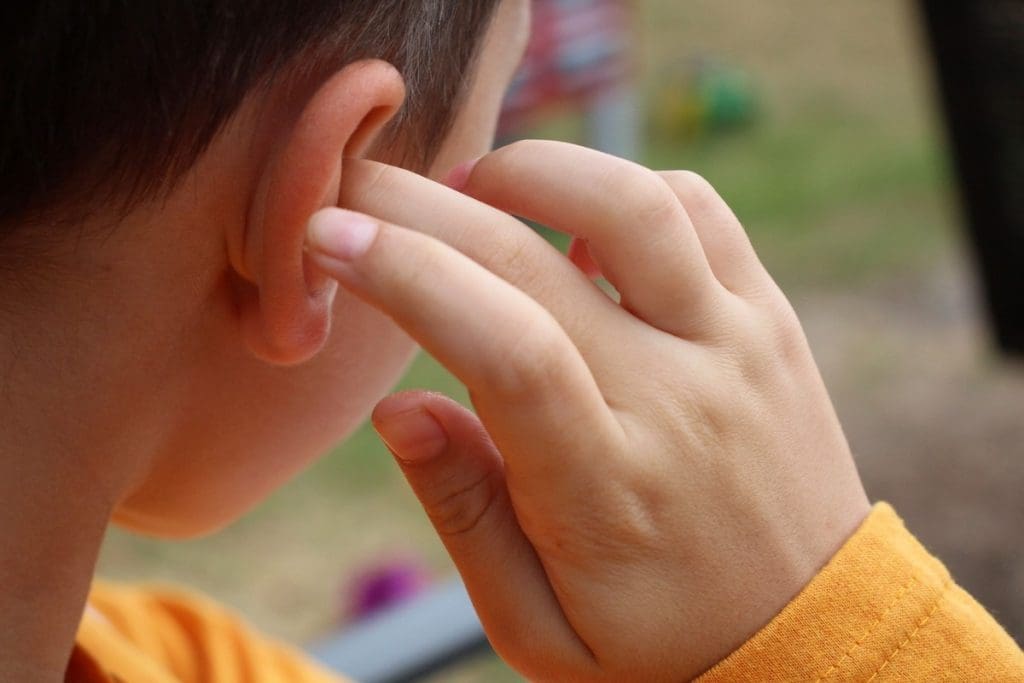Last Updated on November 14, 2025 by

Ear infection symptoms are very common in young children, with 80“90% experiencing at least one infection by age three. It can be difficult for parents to see their child in pain and feeling uncomfortable.
Children with otitis media often show sudden ear pain, irritability, and trouble sleeping. Spotting these signs early is key to preventing complications and helping your child recover quickly.
Ear infections are a big worry for many parents. It’s important to know why they happen, who gets them, and how often. This knowledge helps in treating and managing ear infections in kids.
Ear infections, or otitis media, are usually caused by germs or viruses. The Eustachian tube is key in ear infections. It connects the middle ear to the back of the nose and throat. If it’s blocked or not working properly, fluid builds up in the middle ear. This makes it easy for infections to start.
Respiratory viruses, like the common cold, often lead to ear infections. Allergies and certain body shapes can also raise the risk.

Children get ear infections more often than adults. Their smaller Eustachian tubes and young immune systems are to blame. The small tubes are easier to block, and their immune systems can’t fight off infections as well.
Also, kids are exposed to more respiratory viruses, like in daycare. This makes them even more likely to get ear infections.
Ear infections are most common in kids from 6 to 18 months. About 80-90% of children will have at least one by age three. As kids get older, the number of infections goes down, but they can happen in older kids and adults, too.
Young children get ear infections because of their body shape and developing immune system. They also catch more germs.
It’s important to know how ear infection symptoms change with age. Ear infections, or otitis media, are common in kids. Their symptoms can vary a lot depending on their age.
Infants with ear infections show signs that are not always easy to spot. Common symptoms include:
We must watch for these signs, as infants can’t tell us they’re in pain.
Toddlers often show their discomfort through actions, not words. Typical behaviours include:
These kids may not be able to say what hurts, so watching their actions is key.
School-aged kids can usually tell us what hurts. They might say things like:
These kids can give us important clues about their ear infections.
Ear infections can really upset a child’s day, making them uncomfortable in many ways. As a parent, knowing these signs can help spot an ear infection early.
Ear infections often make it hard for kids to sleep or stay calm at night. The pain gets worse when they lie down. Parents might see their child fidgeting, crying, or pulling at their ear, showing they’re in pain.
Ear infections can also mess with a child’s appetite. The pain in their ear makes eating or drinking hard. Some kids might not want to eat or seem upset while doing so. Spotting these signs can mean your child might have an ear infection.
An ear infection can make it hard for kids to hear or balance. They might seem clumsy or have trouble paying attention. If your child has a fever, like 39 degrees Celsius (102.2 degrees Fahrenheit), watch them closely.
Knowing these symptoms can help you get your child the right care. If you think they have an ear infection, see a doctor. They can tell you the best infected ear remedy and might prescribe ear infection antibiotics.
When your child gets an ear infection, knowing what to do next is key. Ear infections, or otitis media, can be very painful and might lead to bigger problems if not treated properly.
Some symptoms mean you need to see a doctor right away. Look out for severe ear pain, a fever over 102 °F (39 °C), discharge or fluid from the ear, and trouble hearing or responding to sounds.
At a pediatric ear check, the doctor will look into your child’s ear with an otoscope. This lets them see the eardrum and check for infection signs. It’s important for picking the right ear infection treatment.

Treatment for ear infections can vary. It might be watchful waiting or antibiotics for ear infection, based on how bad it is and why. Sometimes, ear tubes are suggested for kids with many infections to help fix the problem.
It’s also good to know about possible complications. These include hearing issues, balance problems, and rare cases of pus if the eardrum bursts. Knowing these risks shows why it’s so important to get medical help when needed.
It’s key to know the signs of a middle ear infection and get medical help. Ear pain and other symptoms can upset kids. But, with the right treatment, most kids get better quickly.
As a parent, your support is very important. It helps your child deal with the pain and possible problems from ear infections. Spotting symptoms early and talking to a doctor ensures your child gets the right care.
Being aware of ear infection signs and acting fast is vital. This way, you help your child feel better faster and avoid serious issues.
Symptoms include sudden ear pain and irritability. They also have trouble sleeping and may have a fever. Infants might pull at their ears. Older kids might say their ears hurt or have trouble hearing.
Ear infections aren’t contagious. But, the causes like colds or flu can be. Washing hands often can help prevent these infections.
Doctors use an otoscope to look at the ear. They check for signs like redness, fluid, or pus behind the eardrum.
Bacterial or viral infections cause ear infections. The Eustachian tube is shorter and more horizontal in kids. This makes it easier for germs to get into the ear. Kids’ immune systems are also developing, making them more likely to get infections.
Treatment depends on the infection. It might include antibiotics, pain relief, or ear tubes. The goal is to clear the infection and relieve pain.
Yes, they can cause temporary hearing loss. This is because of fluid buildup in the middle ear. But, hearing usually gets better once the infection goes away. Chronic infections might cause lasting hearing problems.
Use pain relief medication and keep them upright. This helps reduce ear pressure. Rest and plenty of fluids are also important. If the pain is severe, talk to a doctor.
Get immediate care for severe pain, fever over 39 °C (102.2 °F), or discharge. Also, seek help if hearing loss happens or symptoms get worse. If your child is very irritable or has trouble balancing, go to the doctor.
Subscribe to our e-newsletter to stay informed about the latest innovations in the world of health and exclusive offers!